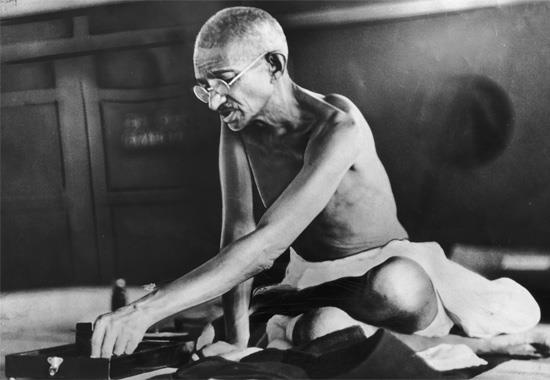Mahatma Gandhi, the preeminent leader of India’s fight for independence, is celebrated not only for his role in liberating a nation but also for the profound wisdom he imparted through his teachings. On the eve of his birth anniversary, we delve deeper into the enduring principles that continue to influence individuals, movements, and nations across the globe.
The power of nonviolence
Gandhi’s advocacy of nonviolence, known as “Ahimsa,” was more than a political strategy; it was a moral and spiritual imperative. His belief in resolving conflicts through dialogue and compassion left an indelible mark on history.
Ahimsa in practice
Gandhi’s dedication to nonviolence was exemplified in the way he led India’s struggle for independence. The Salt March, Dandi March, and numerous hunger strikes showcased his unwavering commitment to peaceful resistance, inspiring movements for civil rights, social justice, and equality worldwide.
“An eye for an eye only ends up making the whole world blind.”
The simplicity of life
Gandhi’s personal life epitomized simplicity and self-sufficiency. He believed that materialism led to moral degradation and encouraged people to live minimally and sustainably.
The Charkha and self-reliance
The spinning wheel, or “Charkha,” became a symbol of Gandhi’s call for self-sufficiency. By promoting handspun cloth, he aimed to reduce India’s economic dependence on British imports, fostering a sense of pride and self-reliance among the masses.
“Live simply so that others may simply live.”
Social justice and equality
Also Read: Who killed Mahatma Gandhi and why? Spinning back the time wheel ahead Gandhi Jayanti 2023
Gandhi was a champion of the marginalized and the oppressed, working tirelessly to dismantle the caste system and untouchability.
Empowering the downtrodden
His efforts to uplift the Dalits, also known as “Harijans” or “Children of God,” sought to bridge social disparities and create a more inclusive society. His message of equality resonated globally, inspiring movements for civil rights and social justice.
“You must be the change you wish to see in the world.”
Unity in diversity
Gandhi’s vision transcended religious and communal boundaries, emphasizing unity among diverse communities.
Fostering interfaith harmony
During times of religious tensions, Gandhi consistently advocated for Hindu-Muslim unity. His principles of tolerance and dialogue laid the foundation for peaceful coexistence and religious pluralism.
“I am a Hindu, a Muslim, a Christian, and a Jew, and so are all of you.”
Conclusion: A timeless legacy
As we commemorate the birth anniversary of Mahatma Gandhi, his teachings serve as a reminder that the path to positive change begins with inner transformation. His philosophy of nonviolence, simplicity, social justice, and unity remains a guiding light for those seeking a more just, compassionate, and equitable world.
